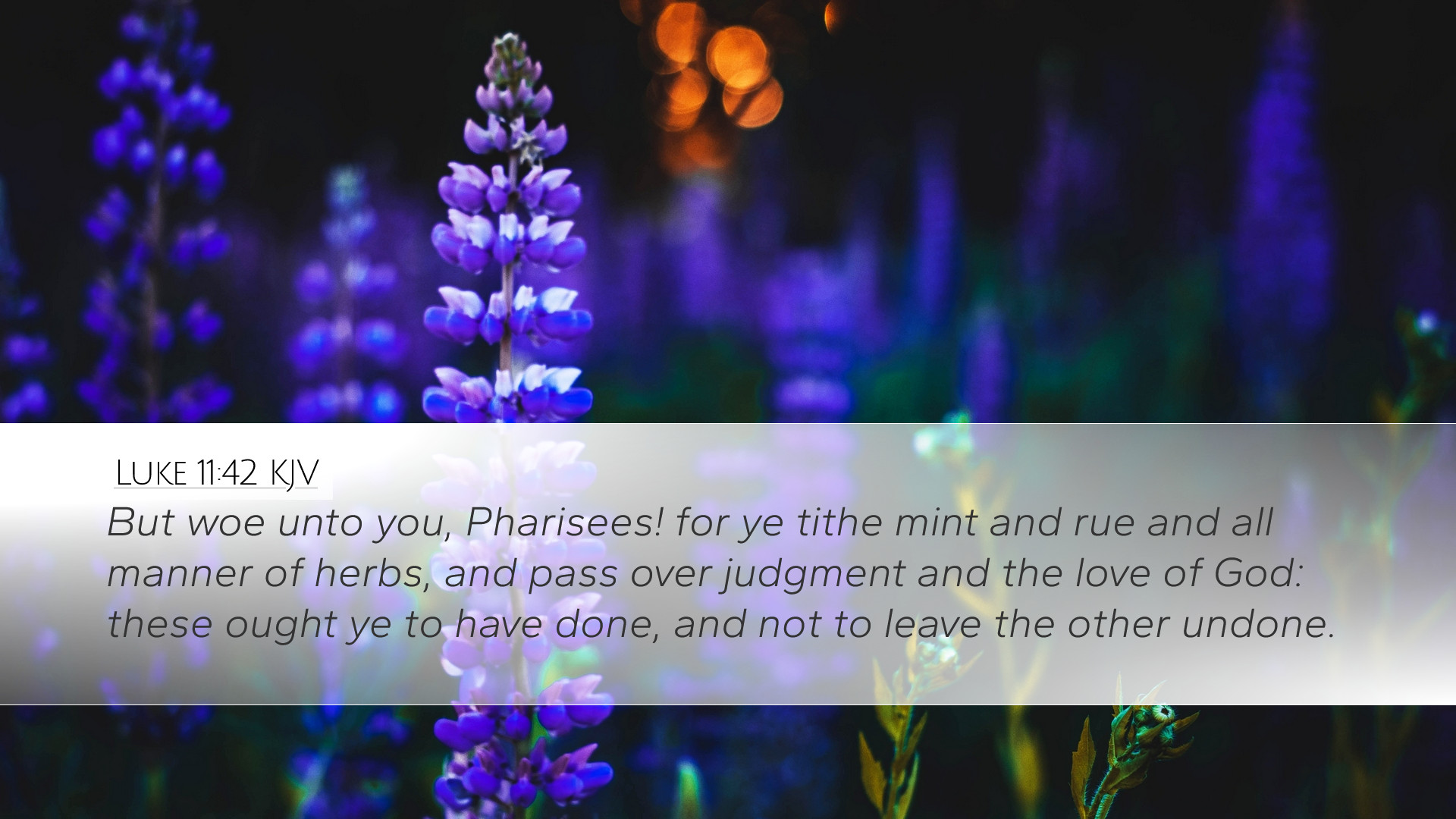Commentary on Luke 11:42
Luke 11:42 states: "But woe unto you, Pharisees! For ye tithe mint and rue and all manner of herbs, and pass over judgment and the love of God: these ought ye to have done, and not to leave the other undone." This verse highlights the critical aspects of genuine faith and the dangers of legalism.
Overview of the Verse
This verse is part of a series of woes pronounced by Jesus against the Pharisees. It illustrates the hypocrisy of the religious leaders who meticulously followed the law in outward rituals but neglected the deeper, more significant issues of justice and love.
Insights from Commentators
Matthew Henry
Matthew Henry emphasizes that while the Pharisees were diligent in observing the minutiae of the law, such as tithing herbs, they failed to grasp the essence of God's commandments. He notes:
- Hypocrisy: The Pharisees exhibited a form of godliness while lacking its power, focusing on the letter of the law rather than its spirit.
- Neglect of Justice and Love: Jesus highlights that the greater duty of loving God and showing judgment (justice) ought to take precedence over ritualistic tithing.
Albert Barnes
Albert Barnes presents the idea of judgment and love as fundamental components of the law that the Pharisees neglected:
- Proper Priorities: Barnes suggests that true spirituality is rooted in prioritizing the weightier matters of the law over the less significant ones.
- Condemnation of Superficiality: He condemns the superficial religious observance that fails to touch the heart, arguing that God desires mercy and compassion above ritual.
Adam Clarke
Adam Clarke discusses the cultural context of tithing herbs and provides a deeper understanding of the verse:
- Cultural Context: Clarke points out that tithing of herbs was a meticulous practice that became a point of pride for the Pharisees, yet it overshadowed the pursuit of integrity and righteousness.
- Spiritual Blindness: He refers to their spiritual blindness, indicating that their religious practices, devoid of love and mercy, become hollow and ineffective.
Application for Pastors and Theologians
This passage serves as a stark reminder for spiritual leaders and students of theology to focus on the essence of their faith rather than merely adhering to external practices:
- Balance in Ministry: Pastors should strive for balance in the application of Scripture, ensuring that love and justice are at the forefront of their teachings.
- Warning Against Legalism: There is a poignant warning against falling into the trap of legalism, where the observance of laws and traditions can overshadow the heart of the Gospel.
- Emphasizing Inner Transformation: Emphasizing the need for inner transformation and genuine love for God and others is crucial in ministry practice.
Concluding Thoughts
The message of Luke 11:42 transcends its historical and cultural context, presenting timeless truths about the nature of God’s expectations for His people. As believers seek to live out their faith, may they remember that:
- True worship involves a heartfelt devotion to God that manifests in love and justice.
- Spiritual authenticity is measured not by external observance but by internal alignment with God's heart.
- Every act of service and obedience should spring from genuine faith, reflecting the character of Christ in a world desperately in need of His grace.


